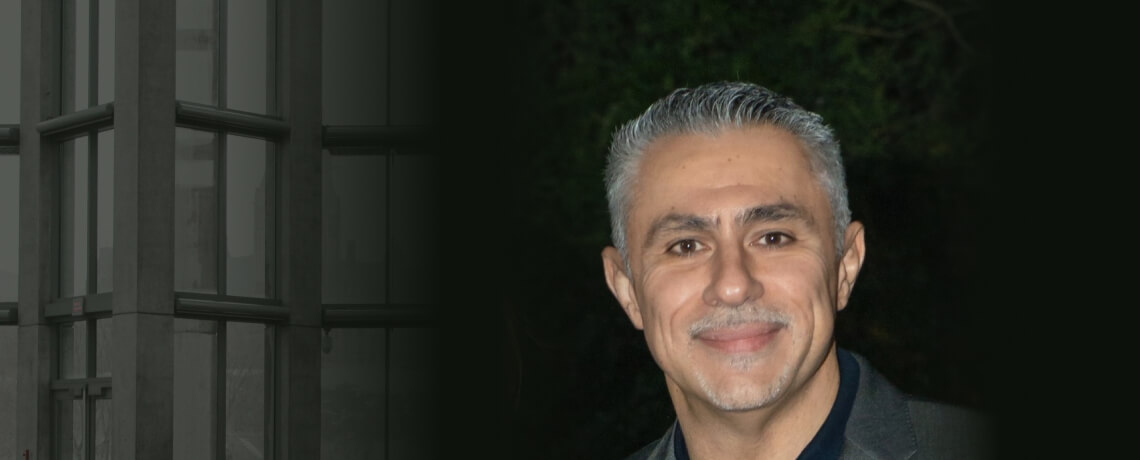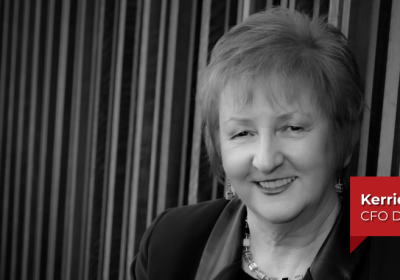
- Author: Richard McBride, Editor CFO Magazine Australia
- Posted: August 31, 2020
Leadership in Times of Crisis – A CFO Perspective
By Richard McBride, Editor CFO Magazine Australia
CFO Magazine Australia first interviewed Ralph Khoury, Chief Financial Officer – MENA at Omnicom Media Group & TBWA\RAAD Middle East in early May, when the world was in the grip of the ‘Great Pause’. We reconnect with Ralph just over 100 days later to follow up and discuss just how much the world has changed and the ongoing challenges facing finance leaders.
RM: Thanks once again for your time Ralph and great to catch up. It has been a wild ride for CFOs over the past 6 months – What have been the steepest learning curves for you as a CFO throughout this time?
RK: Having lived through the Asian Financial Crisis, the Dotcom crisis, The Global Financial Crisis, the SARS breakout, I can say without doubt that this the Global Crisis resulting from the COVID-19 pandemic is the most profound of the lot. There has never been a day since mid-March that has passed without challenge, as we looked to protect the business and our employees from the impact of COVID-19.
The crisis has had a huge impact across businesses, societies, and Nations. Every human being has felt the brunt, either from a business or personal standpoint.
During this time, we have learnt to make the most from working remotely with our teams and organizational leadership. Decision making has needed to be quick and decisive and based on real-time data. We have been obliged to question the status quo when it comes to subjects like work hours, the need for physical office space, the “order to cash” transaction cycle and the mental health and well-being of our most treasured asset – our employees.
As a Finance leader operating in an environment of crisis, I looked to learn from others. Politics aside, I have followed with admiration the crisis management approach of Andrew Cuomo, the Governor of New York, in the way he managed and communicated daily as New York became the epicenter for covid19. I also followed and continue to follow Nancy Koehn, Historian and Leadership expert at Harvard Business School, taking inspiration from her daily leadership crisis management tips. These provided me personally with insights and key learnings to deal with challenges that the crisis has and continues to present.
RM: It is clear that the Covid-19 pandemic has a far wider and long-lasting impact than other crisis’s in almost 100 years. Entire industries such as tourism / aerospace / hospitality, sports and entertainment have witnessed revenues drop by previously unthinkable amounts – How has this changed the way you are approaching 2021?
RK: I remain very hopeful for a 2021 business climate recovery. I anticipate that many of these industries that you mention will bounce back. I do not foresee a “V-shaped” recovery, but I do anticipate that these Industries will record high single digit revenue growth rates. Some unfortunately will need 2-3 year to return to pre-Covid levels of activity. Take the airline industry for instance. Beyond the skies opening back up to various destinations, a full recovery will require the overall confidence in travel to be restored, procedures around travel to be stabilized and refined, and many other factors.
Also, there is talk and even evidence of a second wave of the pandemic. Right now, some markets are battling with that. We have seen what has happened in Melbourne in recent weeks and even our neighbours in New Zealand are on an elevated Covid-19 alert level. With a strong willingness to apply the right measures advocated by Governments and authorities, a second wave should be averted, with the potential of a vaccinebecoming available at the end of 2020 or in the first quarter of 2021. This should hopefully pave the way for economies to recover, industries to flourish again, with consumer demand and employment all improving. I am far from being a doctor specializing in this field, so my overall assessment could well be driven more by hope than reality. Time will tell.
RM: Back to Basics – Whilst in recent years the CFO role has gone ‘beyond the numbers’ in the current climate having an outstanding accountant and leader is crucial – Which are the key areas you have been focusing on?
RK: The CFO and the Finance function in general continues to play an integral role and helping steer the organizations through the crisis.
In my previous article, I spoke about the following “back to basics” initiatives that Finance leaders should deploy, that have been the focus of my attention as CFO since the crisis commenced: –
- Development of Plans and precautions to protect the health and safety of employees and their extended families. (Protecting and securing our most valuable asset – Our Employees)
- Taking the time Reassuring Boards on Cashflow, and liquidity in the short to medium term. (Cashflow Management)
- Using Cost Management as a “lever” that you can control when revenue is reliant on factors outside your control. (Working Capital & P&L)
- A Heightened emphasis on providing early warning signals to any change of situation, be it internal or external. Limit the surprise factor, good or bad. (Analytics and Shareholder Value)
As the crisis prolongs, the attention and focus has pivoted towards identifying potential signals leading to a positive turn towards a recovery. We then ask “Is this a trend? Or is it a glitch?” All CFO’s should be asking this question. The answer may not always be obvious.
RM: The relentlessness of Covid19 has taken its toll on people over the past 6 months – With huge uncertainty, ever moving targets, additional workloads; all whilst juggling family stresses and working from home – How have you and your teams managed throughout this time?
RK: The challenge around all this now means that the work/home balance that we have been used to for decades has been effectively turned on its head. Workplace flexibility has become top of mind, as has employee health, mental health and safety. With employees being our most valuable assets, the need to ensure their well-being becomes critical for business success and sustainability. We held a number of sessions with the teams to support Mental health. We had an open session with Hadleigh Fischer (Founder of Resilience Agenda) on the importance of “Mental Fitness” during these times. In recent months, we have invested in initiatives that should ensure a safe and suitable workplace during this pandemic. Preparing the office for Social Distancing, encouraging a changing etiquette around shaking hands and the use of lifts, the mandatory use of face-masks in the workplace, the availability of hand-sanitizers, and the overall sanitization of the workplace, along with limiting face to face meetings to a handful of employees in person are just a few examples.
The whole objective is to provide employees with “peace of mind”, and the comfort that the office environment was a safe place, allowing employees who returned to the office environment to focus on delivering at their best.
RM: Technology has played a massive role in keeping productivity high and organisations connected to boards, staff, suppliers and clients – What technologies have you relied on and will this have a long lasting effect now we know that it is possible to do things differently?
RK: With all employees now fully equipped with the right hardware, software and tools to ensure efficiency and effectiveness in this new normal, meetings, seminars and even client negotiations are now ordinarily taking place on Microsoft Teams or Zoom. Client and supplier negotiations are playing out on Video, as a Board and Leadership Meetings.
Video conferencing is now playing an integral role in connecting teams, sharing information, delivering presentations, and aligning priorities. When the crisis commenced, I initiated a “war room” video call with my Finance Leadership across the region. At 10am every day, my Finance Team Leaders across the Region dial in. We address all critical issues, take decisions in real time, and set priorities for the day. It provided a sense of regularity and consistency to a working day. It was a way to check in and engage. The team liked that. I liked that. It’s not longer than an hour a day. It has become an invaluable way to kick-start the day.
RM: How do you think that Covid19 will reshape the future of finance?
RK: Covid-19 has pushed Finance to the forefront of the organization. During a previous crisis, I had a CEO that I worked with closely pronounce that the “army was in charge”. This was a metaphor for the systems, processes and initiatives led by Finance to “steady the ship”. It was a time when consistency, dependability and ultimately, delivery without fail were critical. Finance has had to deliver on that in this crisis as well.
Whether it’s to provide real time information for decision-making, or to provide Senior Leadership with a clear “pulse” of where the business is at, the “stewardship” role of Finance is firmly entrenched within it’s responsibility now, even more than ever. So rather than reshaping the future of finance, Covid19 has reinforced certain responsibilities with Finance. It is high time for CFO’s to take the “bull by the horns” and ride it out.








